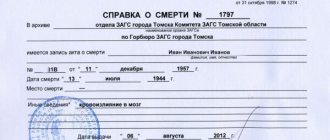What is regulated
The concept, reasons and procedure for eviction of citizens from residential premises are regulated and regulated by the provisions of the following legal acts:
- Art. 84–91 Housing Code of the Russian Federation. They regulate the grounds and procedure for eviction of citizens from residential premises provided in accordance with concluded social tenancy agreements. Disputes in this category are resolved through judicial proceedings.
- Art. 31 Housing Code of the Russian Federation. According to the above article, persons related to the owner of the property by family ties are equally responsible for obligations arising during the use of housing, for example, to comply with the requirements for the purpose of the premises and noise level standards. Eviction of citizens classified in this category is possible only if these obligations are not fulfilled or if closely related relationships end.
- Art. 36 IC RF. In case of dissolution of the marriage union, it is possible to evict the former spouse if they do not have the right of ownership of the residential premises.
- Art. 683, 685 Civil Code of the Russian Federation. Legal regulations regulate the possibility of eviction of citizens under the conditions of expiration of temporary registration, under a rental agreement.
- Art. 292 of the Civil Code of the Russian Federation. Determines the obligation to evict in the event of the sale of housing to a new owner.
- Art. 293 of the Civil Code of the Russian Federation, establishes the obligation of the owner of residential space to use the premises exclusively in accordance with its intended purpose. Malicious violation of this rule may result in initiation of eviction proceedings.
- Art. 83 Housing Code of the Russian Federation. Regulates the possibility of eviction upon termination of a social tenancy agreement for various reasons.
Who cannot be recognized as an ex and evicted from the apartment?
In order to evict former relatives, a minor cannot be forcibly evicted, since their rights are protected in a special manner. This rule applies to any form of ownership of residential premises. Evicting a minor may be impossible or a very difficult process, since you cannot evict a child “to nowhere”; it is necessary to obtain the consent of the guardianship authorities.
The only exception in this situation may be the fictitious registration of a minor in a place where he does not live, if this has been established by the court. However, these circumstances, as a rule, are not of interest to the court and it is impossible to prove them.
It is also impossible to evict a person on alimony support - a dependent. Such a person can be evicted only upon termination of alimony obligations to him.
It is impossible to evict persons who refused privatization, even in the event of a change of owner, since they acquire a special type of right to use residential premises - a lifelong right.
Lifetime right of residence can be acquired by relatives specified in the will. Nothing can be done about this either.
You cannot evict a relative if the living space was transferred from him under a gift agreement with the condition of the right of his lifelong residence.
ATTENTION: do not miss the opportunity to consult a lawyer for free without a phone through commenting - by subscribing to our YouTube channel.
Eviction methods
The process of eviction of a citizen from the residential premises he occupies is initiated by the owner of the property or the authorities in whose department it is located. Regardless of the nuances of the procedure, deprivation of the right to housing is carried out in two ways:
- on a compulsory basis in court proceedings;
- voluntarily by leaving the home and deregistration.
For example, eviction of a person who is the owner of a home on the basis of title documents is possible through the court if he violates the provisions of Art. 293 of the Civil Code of the Russian Federation, which prescribes the requirement to use the premises exclusively for the purposes established by law.
Procedure for eviction of a former family member
Currently, eviction is possible through court proceedings.
- Written demand for eviction . Judicial eviction begins with the initiation by the applicant—tenant or owner—of consideration of the case for the eviction of a former relative. To begin with, a demand is submitted to the residents, setting a deadline for leaving the residential premises. The pre-trial procedure will help further justify the need for the process and the collection of legal costs from the Defendant.
- Lawsuit . The prepared statement of claim and a number of necessary documents confirming the facts stated in it must be submitted to the district court at the place of residence.
- Eviction proceedings . The result of the consideration of the case is the court's decision, which contains a refusal to satisfy the requirements or a decision on eviction.
- Obtaining a court decision and writ of execution . A month must pass after the court decision is made. If the decision has not been appealed by the defendant in the case, then you can pick up the original decision with a mark of entry into force and take it to the Federal Migration Service (“passport office”), where the procedure for deregistering the defendant will be carried out. It is also necessary to obtain a writ of execution for the forced eviction of the Defendant.
- Initiation of enforcement proceedings . The writ of execution received in court must be presented to the bailiffs at the location of the apartment, drawing up a statement about the need to execute the court decision.
- Execution of a court decision . Next, the bailiff makes a demand to the tenant to voluntarily leave the residential premises; if the period expires without result, he begins active actions to kick the tenant out the door and present him with an invoice for the enforcement action.
USEFUL : watch the video, learn how to behave correctly in court
Grounds for eviction from an apartment
ConsultantPlus has many ready-made solutions, including how to remove a tenant from an apartment without his consent. If you don't have access to the system yet, sign up for a free trial online. You can also get the current K+ price list.
The grounds on which residents can evict or be evicted to live in an apartment or house can be divided into two conditional subgroups:
- Eviction in accordance with the initiative of the owner or tenant directly. This is a voluntary procedure when a person moves out of his home.
- Eviction at the initiative of the management company, landlord, neighbors, organizations, due to inappropriate behavior of residents or owners, poor condition of housing, loss of the right to reside in housing.
The second group includes a wide range of bases:
- The need to demolish the house due to its dilapidated state.
- Assigning the status of non-residential premises to real estate.
- Deprivation of the right to live in an apartment, for example in the event of divorce from the owner of the property.
- The presence of debts arising as a result of residents’ refusal to pay for housing and communal services.
- Violation of the rules adopted in a hostel if a person lives in housing belonging to this category.
- Unlawful actions against citizens living in neighboring apartments.
- Deliberately rendering housing virtually uninhabitable.
- Settlement in the absence of the consent required in such a situation from the owner of the real estate.
- Expiration of the rental agreement.
- Use of housing for purposes other than its intended purpose.
Important nuances
The owner can be forcibly evicted from his property for debts only if he owns other property. If the housing is the only one, then Article 226 of the Civil Procedure Code of the Russian Federation talks about the prohibition of alienation of the right to own property.
If a previously evicted owner moves into the apartment again, he can only be evicted by a decision of the same judicial body that made this decision the last time.
The court may not approve your claim for eviction if there is insufficient evidence of violations, or if no attempt was made to resolve the dispute out of court.
Evidence must begin to be collected from neighbors. They are the main witnesses who can describe in detail all the systematic violations of the owner. In order to record the fact of a violation, you need to call the local police officer. Systematic violations reflect several protocols of violations, that is, it is better to call the district police officer several times. If you have photos and video materials, it is advisable to attach them to the evidence base.
If the owner was evicted, but property remains in the apartment, then it is transferred to the bailiffs for storage for 2 months. If the former owner of the living space never took back his things, then the property can be sold and the money paid to the owner, but minus the cost of storing them.
Who can't be evicted
There are certain categories of citizens for whom the measure of eviction from occupied residential premises is limited:
- Children. Deprivation of a minor's right to occupy housing is possible only in cases where the child's parents or guardians provide the latter with equivalent living space or when the fact of fictitious registration is revealed.
- Citizens who have issued a refusal to carry out the privatization procedure. These persons retain the right to reside in the territory they occupy.
- Disabled citizens who are actually dependent on the owner. According to Art. 31 of the Housing Code of the Russian Federation, in exceptional cases, it is permissible to deprive persons belonging to this category of the right to occupy housing. This is possible due to the expiration of the obligation to support the disabled person or on the basis of a court decision.
- Minor citizens left without parental care.
The above rules are no longer relevant if the housing is pledged to a banking institution on the basis of a mortgage lending agreement.
Reasons for the occurrence of the described situations
The most common are:
- Drug addiction, alcohol addiction - which leads to a sharp increase in debt for housing and communal services, as well as for renting an apartment, damage, destruction, failure to respect the rights of neighbors and other residents of the house;
- Regular non-payment of utility bills - the reason for this behavior may be hidden in the tenant’s unemployment, despite the fact that this is not a basis for releasing him from liability, however, the court may take into account the fact that the person is busy looking for work (for example, she is registered at the employment center).
Video: Eviction from a municipal apartment:
(No Ratings Yet)
The procedure for eviction from residential premises in court
Eviction from municipal housing or residential premises owned by an individual is possible only after a trial. Common reasons for going to court include:
- divorce involving the need to evict one of the parties due to the termination of the marital relationship;
- presence of arrears in payment of utility services;
- use of housing not in accordance with its intended purpose.
The procedure for eviction of citizens from the housing they occupy is as follows:
- Filing a claim in court.
- The court issues a ruling to accept the claim for consideration and set a date for the trial.
- Conducting a trial.
- The court makes a procedural decision. Deprivation of the defendant's right to reside in the residential premises he occupies is possible only if the claims are satisfied.
- Entry of the decision into legal force.
- Issuance of a writ of execution or a copy of a decision that has entered into legal force.
- Sending a writ of execution or procedural act to the bailiffs for execution.
If the plaintiff is deprived of the opportunity to independently go to court, for example, due to remote residence or being undergoing treatment, it is permissible to transfer powers to a person acting on the basis of a notarized power of attorney.
Statement of claim
The procedure for drawing up a statement of claim is regulated by the provisions of Art. 131 and 132 of the Code of Civil Procedure of the Russian Federation, according to which the document must include the following information:
- name of the court to which the statement of claim is sent with a package of documents attached (the claim is filed at the place of residence of the defendant);
- passport, address and contact details of each party, one of the defendant’s identifiers, for example SNILS or INN;
- Title of the document;
- substance of the dispute;
- a petition to subpoena persons who are witnesses; it is permissible to file the said petition within the framework of the trial;
- plaintiff's claims;
- list of documents attached to the application;
- date of filing the claim and signature of the plaintiff.
The statement of claim must be supplemented with documents confirming the legality of the plaintiff’s claims:
- a receipt confirming payment of the duty;
- documentary evidence of the need to deprive a citizen of the right to reside in housing.
If a person does not have the opportunity to independently present documents confirming the legality of the plaintiff’s claims, the latter may file a petition to have them demanded by the court.
Stages of forced eviction of an owner
The shortest way to evict an owner from an apartment is to write a statement to the district police officer to prove a systematic violation of public order. To do this, you need a pre-prepared evidence base. However, if this option is not available, you can take the long route. The process looks like this:
- You submit a statement to the administration in order to provide assistance and influence the owner of the property where there are violations.
- The administration representative issues an order to the property owner to eliminate the identified violations.
- If the owner of the premises ignores the requirements, then a statement of claim is filed in court at the place of registration of the owner.
- The statement of claim is sent to the court along with a set of documents and paid state duty.
- Based on the results of the consideration of the case, either the court decision is executed, or the owner retains his rights to the living space.
To ensure that the process of considering the claim does not drag on, that it is considered and not returned with a refusal, it is necessary to fill out everything correctly and collect all the necessary documents.
The content of the statement of claim reflects the norms of Federal Law No. 138-FZ, Article 131 of the Civil Procedure Code of the Russian Federation. The list of attached documents is reflected there, in Article 132.
Extrajudicial eviction from a residential premises
Extrajudicial eviction of a citizen from the residential premises he occupies is most often possible only with the voluntary consent of the latter.
But there are nuances. For example, an option for extrajudicial eviction is if the rental agreement stipulates that it will be terminated without trial if the tenant violates certain terms of the agreement. Then it is permissible to terminate the transaction without trial, having previously sent the employer a notice of violation of the terms of the contract.
In addition, eviction without trial is possible when the occupied person has lost the right to reside, for example, the rental agreement has expired. In this case, he should be given an eviction notice.
Subscribe to our newsletter
Yandex.Zen VKontakte Telegram
Notice for extrajudicial eviction
In accordance with Art. 35 of the Housing Code of the Russian Federation, a notice of eviction can be drawn up in any form, including orally.
Written notice may be sent to the employer in the following ways:
- Russian Post by registered mail with notification;
- by telegram;
- personally.
Eviction from a privatized apartment
The term “privatized apartment” means housing that has become the property of an individual from the municipal fund. In fact, the grounds for eviction from such an apartment are general, for example:
- Annulment of marital relations. In accordance with Art. 36 of the RF IC, a citizen may be deprived of the right to live in an apartment if the housing was privatized by a spouse before marriage.
- Use of housing for purposes other than its intended purpose. According to Art. 293 of the Civil Code of the Russian Federation, the owner can be evicted from the housing he owns in the event of neglect or use of the area not in accordance with the purpose specified by law, for example, the conversion of an apartment into a warehouse.
- Sale of housing by owner. In accordance with Art. 292 of the Civil Code of the Russian Federation, the owner loses the right to reside in residential premises belonging to him after concluding a purchase and sale agreement.
- Debt resulting from non-payment of housing and communal services.
Legislative framework for forced eviction of the owner
Housing disputes regarding forced eviction are regulated in detail by law.
The following legal provisions apply to forced eviction:
- Article No. 31, Articles 86–89 of the Housing Code of the Russian Federation.
- Article 292 of the Civil Code. The owner can be forcibly evicted if he is paid compensation for the share he owns.
- Clause 2 of Article 235 of the Civil Code of the Russian Federation. The owner can be evicted by a court decision if the property is not used for its intended purpose.
- Part 1 of Article 293 of the Civil Code of the Russian Federation. You can evict the owner if the housing is used for other purposes, and if conditions are created that threaten the safety of neighbors.
However, Article 40 of the Constitution of the Russian Federation states that no citizen of Russia can be evicted from the living space where he lives. Therefore, the court considers issues of eviction individually and comprehensively.
The initiator of the issue of forced eviction can be representatives of government bodies, as well as representatives of municipalities. Only the court can make a decision on eviction.
Eviction from a municipal apartment
Eviction of citizens living in housing owned by the municipality is possible if there are grounds specified by law:
- systematic violation of the rights of third parties, which, as a rule, are neighbors;
- violation of the terms of the contract: refusal to pay utility bills, use of housing not in accordance with its intended purpose, taking actions that resulted in the apartment being rendered uninhabitable;
- recognition of the need to demolish the house due to its emergency condition.
The procedure for eviction of citizens from a municipal apartment can be carried out either voluntarily or forcibly. If a person refuses to leave the premises in which he lives, he will have to go to court. If disabled or minor citizens or persons with disabled status live in municipal housing, eviction is permissible only if another apartment or house is provided from the flexible fund.
What legal grounds are provided for the eviction of residents of municipal real estate?
The social tenancy agreement can be terminated in accordance with the principles and norms of the Russian Housing Code.
Consequently, grounds for eviction of persons from municipal housing may arise if the tenant:
- Regularly violates the rights of residents of the house and neighbors.
- If the living space is determined to be unsuitable for subsequent living in it.
- If the tenant systematically does not pay for housing and utilities.
- If for a number of reasons the apartment is transferred to non-residential stock from residential.
- If he and his family members, who live in the same apartment, were able to cause significant destruction and damage to the living space.
- If a person uses the living space for purposes other than its primary purpose.
So, in a situation where eviction is carried out due to systematic non-payment of housing and communal services, the perpetrators must receive a hostel in accordance with the standards for this type of living space. In case of discharge of persons on the basis of transfer of housing to non-residential stock, as well as due to the unsuitability of the apartment, the tenant is required to receive premises with similar characteristics.
How to evict an alcoholic neighbor's owner, see the article: how to evict an alcoholic neighbor.
Eviction from a social rental apartment
Social rental apartment is housing provided by the state on the basis of a social rental agreement to citizens classified as needing improved housing conditions. Persons living on the territory of municipal housing can be evicted only if there are compelling reasons, the list of which is given in Art. 90, 91 LC RF, Art. 293 Civil Code of the Russian Federation. These include, for example, systematic violation of the rights of third parties, negligent attitude towards the apartment.
In the absence of consent from the tenant, the eviction procedure can be initiated only if there is an appropriate writ of execution issued by the court on the basis of a satisfactory decision. As practice shows, depriving a citizen of the right to live in municipal housing is an extremely rare necessity. More often, this happens as a result of the building in which the social rental housing is located being given emergency status, which implies demolition. In such situations, tenants are provided with equivalent accommodation.
Eviction with provision of other living quarters
According to the housing legislation of the Russian Federation, eviction with the provision of other residential premises to the evicted citizen and his family members permanently residing with him is carried out in the following cases.
1. Eviction from official residential premises of citizens who are included in the list of persons entitled to the provision of other residential premises. So, in accordance with Art. 103 of the Housing Code of the Russian Federation, without the provision of other residential premises, after the expiration of the term of employment, service, tenure in an elected position, or early termination of these relations, tenants and members of their families included in the following list cannot be evicted:
- family members of military personnel, officials of internal affairs bodies, state security bodies, customs authorities, killed (deceased) or missing in action while performing military service or official duties;
- old age pensioners;
- family members of a deceased employee who was provided with official housing;
- disabled people of groups I and II, whose disability occurred as a result of a work injury due to the fault of the employer, disabled military personnel who became disabled of groups I and II due to injury, concussion or injury received during the performance of military service duties or as a result of a disease associated with being in military service .
2. Eviction from hostels of citizens falling under the list of persons given in Art. 103 Housing Code of the Russian Federation. Upon eviction, these citizens are provided with another residential premises.
3. Eviction of citizens due to failure to pay for housing and (or) utilities. In accordance with Part 2 of Art. 687 of the Civil Code of the Russian Federation, a commercial rental agreement for residential premises can be terminated in court at the request of the lessor if the tenant fails to pay for the residential premises for six months, unless the contract specifies a longer period, and in case of short-term rental - in case of failure to pay payment more than twice in a row upon expiration of the payment period established by the contract. In accordance with Art. 15 of the Law of the Russian Federation “On the Fundamentals of Federal Housing Policy”, in the event that payment for housing and utilities under a social tenancy agreement is not made within six months, citizens are subject to eviction in court with the provision of residential premises that meet sanitary and technical requirements , according to hostel standards. Taking into account special circumstances, this period may be changed at the level of legislation of the constituent entities of the Russian Federation.
4. Eviction of the owner of the mortgaged residential building (apartment) and his family members in the event of foreclosure on the mortgaged residential building (apartment). The owner of a residential building (apartment) who has lost residential premises as a result of foreclosure on this premises, acquired through a loan from a bank or other credit organization or funds from a targeted loan provided by a legal entity for the purchase of a residential building or apartment, and pledged to ensure repayment of the loan or targeted loan loan, if at the time of foreclosure such housing was the only one for them, has the right to be provided with residential premises in houses of a flexible housing stock.
Other residential premises provided to citizens in connection with eviction must meet sanitary and hygienic requirements and be located within the boundaries of the given locality. The living area of another residential premises must be no less than the size established in a given locality for registering citizens in need of improved housing conditions (not lower than the registration norm). In this case, other residential premises provided to the tenant and members of his family must be precisely indicated in the court decision to evict the tenant.
Eviction from a mortgaged apartment
An apartment purchased on the basis of a mortgage lending agreement is actually the bank’s collateral until full settlement between the borrower and the lender. The transfer of ownership to the home buyer is initially registered with an indication of the encumbrance.
Violation by the borrower of the terms of the loan agreement, systematic omission of payments, refusal to deposit sums of money can lead to foreclosure on the living space. In such situations, housing is seized for the purpose of subsequent sale and repayment of existing debt.
The bank can initiate an eviction procedure even if the apartment is the owner’s only residence. Deprivation of a citizen's rights to reside in residential premises acquired on the basis of a mortgage lending agreement is permitted only subject to a trial and a positive procedural act.
Eviction from an apartment by the owner
As practice shows, the most common situations are when the procedure for eviction of citizens from housing is initiated by the direct owner. In the absence of consent from the persons living in the apartment, eviction is carried out through judicial proceedings. Reasons:
- According to Art. 31 of the RF Housing Code, a citizen who has divorced may deprive his former spouse of the right to reside in housing that belongs to him. The eviction measure also applies to relatives of ex-husbands and wives.
- In accordance with Art. 292 of the Civil Code of the Russian Federation, the eviction measure is applied when the rights of the owner are transferred, that is, when selling housing.
In most cases, eviction and deregistration of citizens living in an apartment owned by a third party on the basis of title documents is possible only after a trial. To make a satisfactory decision, the owner must provide evidence confirming the legality of the demands for eviction.
Grounds for eviction of citizens from specialized residential premises
Premises of specialized housing stock are allocated to citizens in need of housing, taking into account their professional, social, and legal status for a specific period. Eviction is carried out in accordance with the established procedure when rental contracts are terminated or terminated, but citizens continue to occupy the home.
In case of refusal to vacate the territory voluntarily, forced eviction of citizens from specialized residential premises is ordered. Evicted persons are not provided with any other housing, with the exception of categories of citizens who are officially registered and are registered with the state as needing housing. The list of citizens who have grounds for providing housing upon eviction is established by Part 2 and Part 5 of Article 103 of the Housing Code of the Russian Federation.
Eviction of illegal residents
Illegal occupation of residential premises is usually understood as the entry into an apartment of citizens who do not have the right of ownership to the specified premises and other rights to reside in it, for example, the rights of a tenant. The law allows for the eviction of persons who have arbitrarily occupied living space that does not belong to them, either administratively or through judicial proceedings. Unlike other cases, in such a situation it is not necessary to provide citizens with free premises for subsequent residence.
Eviction of ex-spouse
In accordance with the provisions of Art. 31 of the RF Housing Code, the right to use residential premises may be terminated as a result of the dissolution of the marriage union. However, this is only possible if a number of conditions are met:
- One of the parties lives in an apartment that is individually owned by the former spouse, that is, is not the owner of the residential premises.
- The spouses lived in the apartment on the basis of a social tenancy agreement, where only one of the parties was indicated as the main tenant.
- The terms of the mortgage lending agreement are fulfilled only by one of the spouses, while the second is excluded from the list of joint borrowers in accordance with voluntary consent or on the basis of a court decision.
To evict and deregister a former spouse, the other party must apply to the court with a corresponding statement of claim. It is necessary to attach evidence confirming the fact that the defendant does not have legal rights to own the housing he occupies.
Eviction of a person who has lost the right to use
Advice from lawyers:
1. Yesterday, the Khabarovsk Regional Court made a decision to recognize me and my family (my daughter and her two minor children) as having lost the right to use residential premises and to be evicted from a closed military camp. Where should we go and what should we do?
1.1. Contact your local authority. You may be provided with housing from the flexible fund or other social housing.
Did the answer help you?YesNo
Consultation on your issue
8
Calls from landlines and mobiles are free throughout Russia
2. There is a court decision that has entered into legal force on the appeal on deregistration and recognition of the loss of the right to use the inherited property. Question: is this decision enough for me to expel myself or do I need to additionally go to court for eviction under the existing decision.
2.1. Hello. Based on this decision, the defendant is obliged to evict. If this does not happen, you need to obtain a writ of execution from the court and present it to the bailiff service for enforcement.
Did the answer help you?YesNo
3. I have a writ of execution in my hands for eviction and loss of the right to use residential premises. I am not obliged to provide other accommodation. The apartment belongs to me and at the moment there lives a person whom I evicted through the court. What happens if I take her things to another premises without involving bailiffs in this process? And can such actions be regarded as arbitrariness?
3.1. If there is a court decision on eviction, you must contact the FSSP to enforce the decision; do not put up any things yourself, it may turn out for the worse for you.
Did the answer help you?YesNo
4. I filed a lawsuit to recognize my brother as having lost the right to use and evict me from my apartment, but did not write without providing other housing. What the threat is and how to fix it, the trial is in less than a week.
4.1. Hello, It is difficult to assess the importance of an unfinished requirement in your individual case without documents. In any case, you can clarify your requirements during the meeting by means of a statement/written request).
Did the answer help you?YesNo
4.2. Submit an updated statement of claim in accordance with Art. 39 Code of Civil Procedure of the Russian Federation,
Did the answer help you?YesNo
5. The husband filed a claim for recognition of the loss of the right to use the residential premises and eviction, how much should I pay the state fee for determining the share in the apartment.
5.1. A claim for the allocation of a share, division by shares is a claim of a property nature, subject to assessment. Therefore, the amount of state The fees will depend on the price of the claim, that is, on the value of the share in the apartment to which you are going to recognize your right. Look at the article. 333.19 Tax Code of the Russian Federation.
Did the answer help you?YesNo
5.2. Hello Irina! If you file a claim for division, the state fee is paid depending on the value of the share you are asking for.
Did the answer help you?YesNo
6. I bought an apartment, the former owners moved out before the deadline established in the contract but did not check out. I’m going to court, I’ll file a claim, the court said there are templates on the website, The template is called: Statement of claim for recognition as having lost the right to use residential premises, eviction and deregistration at the place of residence It asks the court, in addition to deregistration, to also evict, there is no need to evict. Do I just need to remove it from the eviction application? Or leave it?
6.1. Sergey Valerievich, leave only those requirements that you need.
Did the answer help you?YesNo
7. In the first claim, she wrote about being declared to have lost the right to use residential premises. Deregistration. In the second claim, she writes about being declared to have lost the right to use the residential premises. Termination of the social tenancy agreement and eviction. And what definition do you have in mind?
7.1. Dear Irina Anatolyevna, good night! Please clarify at the time of filing the claim in 2020, was your daughter still a minor or not? And is she an adult now? In this matter, this is of fundamental importance.
Did the answer help you?YesNo
8. My roommate moved out of the residential building where she was registered a year ago, took all her things, I filed a lawsuit for eviction and deregistration. accounting. She filed a counterclaim to move in, but the court rejected her. This decision is that she has lost the right to use the residential premises.
8.1. After a month, the court decision comes into force. You should appear at the court office and put the appropriate stamp on the copy of the decision.
Did the answer help you?YesNo
8.2. Hello. From the moment the court decision enters into legal force, it is considered that she has lost the right to use the residential premises.
Did the answer help you?YesNo
8.3. Hello, it is important what decision the court made on your issue, if in your case the court decided that she had lost the right to use the premises and satisfied your requirements, then wait for it to come into force and go with the decision to the passport office and remove it from the registration register.
Did the answer help you?YesNo
8.4. What about your claim? The court's decision to refuse to satisfy the former cohabitant's claims establishes circumstances that you will not have to prove in the case of your claim. Only, if she does not live in the apartment, then you need to ask not to evict her, but to recognize her as having lost the right to use the residential premises and deregistration.
Did the answer help you?YesNo
9. Evicting someone as having lost the right to use the residential premises is one requirement or two. It may be enough to demand recognition as having lost the right to use and the eviction will take place automatically.
9.1. The statement of claim must formulate two demands - to recognize the defendant as having lost the right to use the residential premises and to evict him.
Did the answer help you?YesNo
9.2. Hello, if a person lives in an apartment, then three demands must be made: recognition as having lost the right to use the residential premises, deregistration and eviction. Good luck and all the best.
Did the answer help you?YesNo
9.3. Hello! Nothing ever happens automatically. If there are no demands for eviction, then the bailiff will not be able to evict him if the defendant actually lives.
Did the answer help you?YesNo
9.4. Good day! Each claim must be clearly formulated in the statement of claim. When considering a case, the court will not go beyond the claims made by the plaintiff. It won’t work automatically, as you put it. Best wishes!
Did the answer help you?YesNo
10. There was a court decision from the owner to evict me, but after half a year this owner lost ownership of the apartment, then the owner of the apartment changed. But the eviction case is still in force. Please clarify whether the same owner can evict me, who has lost the right to use the residential premises.
10.1. Good day. He probably has no time for you anymore. Once lost the right of ownership. Decide with the second owner. Perhaps he will be more favorable to you. The question is that you did not explain the reason for your eviction.
Did the answer help you?YesNo
10.2. Good day. Theoretically, he has such a right insofar as the court decision has entered into force and has not been cancelled. Good luck and all the best.
Did the answer help you?YesNo
10.3. No. Now the new owner can evict you if the court decision has not been executed and you continue to live in the same apartment to this day.
Did the answer help you?YesNo
11. Does my mother, the owner of the apartment, have the right to change the locks and prevent people from living in the apartment where I and my child are registered, providing physical assistance? impact and not letting me into the apartment, I don’t have any other housing, so she also filed a lawsuit to be recognized as having lost the right to use, she writes that I myself don’t live in the apartment, what should I do, I want to file a counterclaim for eviction, I’m 7 months pregnant, I think that the court will take my side, because my mother has no right to discharge me to anywhere.
11.1. The owner of a residential premises has the right to resolve issues related to the disposal of housing, including deregistration. You have no chance.
Did the answer help you?YesNo
11.2. Hello! And how old are you? If you are already 18 years old, and your mother is the owner of the residential premises, then she has the right to file a lawsuit for eviction without providing another residential premises.
Did the answer help you?YesNo
11.3. Hello. If you do not have a share in the property rights, then your mother has the right, on the basis of Article 31 of the Housing Code of the Russian Federation, to evict you in court without providing other housing. Good luck to you.
Did the answer help you?YesNo
12. Received an apartment under a rental agreement in a military camp in 2009. At the time of receiving the apartment, he worked as a mechanic at KEC. After the abolition of the KEC in 2010, I continue to work at the same facilities for their life support (REU LLC, State Housing and Communal Services). I received a summons to court for a hearing on the case of declaring that I had lost the right to use the premises and eviction from the residential premises. Is the RF Ministry of Defense's claim against me justified?
12.1. Good afternoon. I recommend that you contact a lawyer to accompany you in court. It is possible for you to fight off their claim, but you need to competently defend you in court.
Did the answer help you?YesNo
12.2. Hello, Alexander, in order to give you the correct answer, you need to familiarize yourself with the claim, the lease agreement and other documents. Good luck and all the best.
Did the answer help you?YesNo
12.3. Perhaps the demands are not justified; you need to familiarize yourself with the case materials and prepare for the court hearing. For professional assistance in court in Volgograd, please contact the number. Sincerely, Lawyer - Stepanov Vadim Igorevich.
Did the answer help you?YesNo
13. By a court decision in 2000, the claim for eviction from a municipal apartment due to moving to another permanent place of residence was rejected. The court concluded that the defendant did not move to another permanent place of residence, lives in his mother’s house, does not live in the disputed apartment due to hostile relations with the plaintiff, and therefore did not lose the right to use the disputed residential premises. Is it possible to discharge the defendant now, how and on what grounds? Thank you.
13.1. If the circumstances have changed (you left voluntarily, took things out, did not try to move in, etc.) - go to court again with the same claim.
Did the answer help you?YesNo
Consultation on your issue
8
Calls from landlines and mobiles are free throughout Russia
14. When writing a claim for recognition of the loss of the right to use residential premises, eviction, deregistration of my brother and his young daughter, is it possible to register the daughter as the second defendant in the head of the claim or is it necessary to indicate her legal representative? Or can the girl herself be listed as a defendant in the statement of claim?
14.1. Hello! Both the brother and his daughter must be defendants, since you will demand recognition as lost and eviction of both the brother and daughter.
Did the answer help you?YesNo
14.2. Please indicate her legal representative and write below “in the interests of the minor daughter, full name...”
Did the answer help you?YesNo
14.3. The defendant will be the girl, and her legal representative can represent her interests in court.
Did the answer help you?YesNo
15. In 2020, without malicious intent, she damaged her parents’ property. My father threatened the police and the monkey keeper, I was ready, but no one came. The relationship is still tense, and he scares me with the housing code, according to which I allegedly lost the right to use the house. The parents are preparing a lawsuit, but I have no idea what exactly they want to achieve. I'm afraid that I'll get an eviction notice or a fine for damaging property. What could happen to me?
15.1. If you damaged property belonging to them, and this fact is recorded, then the damage may be recovered from you. As for eviction, this is also possible. If you are not the owner of the house.
Did the answer help you?YesNo
15.2. In such situations, the court does not issue a fine, but may only order you to compensate for the damage caused. Can parents prove the fact of property damage? If not, then you can deny everything. As for the claim for recognition as having lost the right to use, the parents have the right to file it if you do not live in the house, do not pay utilities, or prevent them from exercising their rights. You, in turn, can declare in court that this is your permanent place of residence and ask to dismiss the claim.
Did the answer help you?YesNo
16. The following are registered on the living space: child, mother, father. The father is the main tenant and has not lived under registration for about five years. Tell me, what documents are needed to be recognized as having lost the right to use and subsequent eviction from municipal housing? Thank you.
16.1. If he does not live in the apartment, then what kind of EVICTION can we talk about? Who should be evicted? Someone who doesn't live anyway? As for recognition as having lost the right to use an apartment, this is possible. But this is very difficult and is only possible by a court decision. Contact a lawyer in your city for assistance in court. PS There are no “master tenants”. And for a long time now...
Did the answer help you?YesNo
16.2. Good afternoon A social tenancy agreement, a certificate of family composition, the address where the father actually lives, confirmation that you pay utilities.
Did the answer help you?YesNo
17. Is it necessary to raise the issue of eviction in a statement of claim for the eviction of the previous owner from a seized and sold home, or is it sufficient to recognize the person as having lost the right to use and deregister? How will the same bailiffs or police regard the unauthorized eviction of persons who do not have any legal rights to housing?
17.1. Hello! The question of eviction needs to be raised. The court will make a decision and the bailiffs will forcibly evict if they do not voluntarily evict.
Did the answer help you?YesNo
17.2. If a person actually lives and uses residential premises and refuses to vacate voluntarily, then a demand for eviction must be raised. If the defendant does not actually reside, then such a requirement in the application is not necessary.
Did the answer help you?YesNo
18. Is there a legal mechanism for eviction of the debtor, the former owner, from the sold apartment without going to court with a claim for recognition of the loss of the right to use the premises, deregistration and eviction. This procedure takes a lot of time and is associated with legal costs and payment of utility bills during the former owners’ stay in the apartment.
18.1. No. this is only possible through the courts.
Did the answer help you?YesNo
19. The ex-husband filed a lawsuit to recognize me and my daughter as having lost the right to use residential premises and to evict me. We have been registered in his non-privatized apartment since 2002. He repeatedly tried to evict us through the court and the court refused to recognize the marriage as fictitious. under Ukraine. In 2007, I divorced him, I pay for utilities, he is visually disabled. Can he write us out and evict us and on what basis?
19.1. No, the court will refuse him, since you pay the payments.
Did the answer help you?YesNo
19.2. Ekaterina, according to Russian legislation, in order for you to be recognized as having lost the right to use, the following three elements must be present: 1. You left on your own and had no intention of returning; 2. Your things are not in the apartment; 3. You do not pay utilities and other mandatory payments. Just present your utility bills to the court.
Did the answer help you?YesNo
20. Filed a claim to recognize my father as having lost the right to use the home. He is the owner of a private house in Kazakhstan, we have not been running a joint household for more than 3 years, he does not pay utilities, he is engaged in sabotage (in his absence he changes the locks of the front door, damages property). He does not want to check out and vacate the apartment on his own. The court reasoned that my application did not include a petition for forced eviction. Are you right in court? Thank you. Best regards, Owner.
20.1. If the defendant did not live in the apartment, then there is no need to file a demand for eviction. If you do not agree with the court's decision, you need to file an appeal.
Did the answer help you?YesNo
I have eviction court soon. Is it possible to evict my ex-husband from the apartment that he previously gave to me, and I, in turn, made a deed of gift to my mother?
Tell me, if I want to evict my sister and her partner, who have been living in it for a long time, from my apartment,
It is necessary to discharge my son's ex-wife from a municipal apartment. How to write the name of the claim correctly?
In September 2011, the district administration, under a lease agreement, allocated an apartment for a period of 3 years to a district police officer.
Is there a stamp in the passport about eviction by court decision (with exactly these words)?
The statute of limitations for eviction from a service apartment has expired. The court decided to recognize me as having lost the right to use residential premises,
The main tenant has lost the right to use office premises,
I divorced my husband, I am the owner of the house (under a gift agreement).
The head of the statement of claim for recognition of the loss of the right to use residential space, deregistration and eviction indicates the address of the defendant.
The court ruled that the husband had lost the right to use the residential premises, and the minor son had not acquired the right to use the residential premises.
I lived in a non-privatized apartment as the main tenant! Due to a bad relationship in the family with my wife and children, I left this apartment to live in another city!
Eviction from office premises
In accordance with the provisions of Art. 103 of the Housing Code of the Russian Federation, eviction of a citizen from the office premises he occupies is possible only if there are legal grounds. These include the expiration of the social tenancy agreement, the transfer of ownership of housing, and a gross violation by the tenant of the terms of the agreement.
In the absence of violations of the contract by the tenant, eviction on a voluntary basis is possible only if equivalent residential premises are provided. In other situations, the procedure for depriving a citizen of the right to reside in office premises is carried out as part of a judicial proceeding. As practice shows, in such cases, courts often make decisions that satisfy the interests of the actual owners of housing.
Briefly about the main thing
Forced eviction is one of the most complex property issues. Government authorities have the right to evict people from dilapidated housing or property that is subject to demolition. However, then all owners are provided with new apartments to replace their previous housing.
If, in the case of shared ownership, the owner of the share does not plan to evict voluntarily, then there is a special procedure for this, according to which the owner can be offered material compensation. In some cases, the court may order forced payment of compensation followed by eviction.
In all other situations, the owner is not provided with payments or new housing. The main reasons for forced eviction are systematic violations of public order and failure to properly maintain housing.
A forced eviction decision is made only on the basis of a court decision. The statement of claim is considered within 30 days, but the greatest difficulty is in filling it out correctly and collecting documents and evidence. At this stage, the involvement of a professional with a good legal background is required.
The owner has 6 months to appeal the court decision to evict. After this, the court decision comes into force and the defendant must leave the home.
Sources:
Form and content of the statement of claim, Civil Procedure Code of the Russian Federation" dated November 14, 2002 No. 138-FZ. Article 131.
Documents attached to the statement of claim, Civil Procedure Code of the Russian Federation dated November 14, 2002 No. 138-FZ. Article 132.
Civil Code of the Russian Federation (Part One)" dated November 30, 1994 N 51-FZ Article 293.
Termination of ownership rights to unmanaged residential premises
“Civil Code of the Russian Federation (Part One)” dated November 30, 1994 N 51-FZ Article 235.
Civil Code of the Russian Federation Article 235. Grounds for termination of ownership rights








